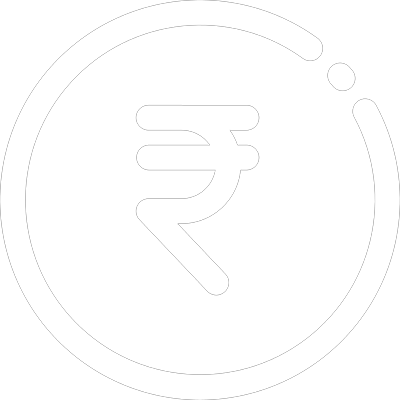Background
Nadhayekoundanur is a village which is located 15 km from Pollachi taluk, Coimbatore District. Pollachi is often popularly known as the coconut capital of Tamil Nadu, where coconut exports and coir mills flourish well. A lot of communities are involved in the coconut value chain as every part of the coconut is used very productively. A lot of communities are engaged in rope making as their primary occupation and income. However, they are still using traditional methods and practices which are very drudgery prone, tedious, full of health risks, and have low productivity resulting in low incomes.
Mr. Thangavel is a rope making entrepreneur from Nadhayekoundanur and has been practicing this skill for close to 50 years. This is a generational livelihood for his family and the others in the village as well. Their son has migrated to work elsewhere in Coimbatore city, just as most children of rope makers have. He has 3 acre of agricultural land and agriculture is their secondary income. They buy their raw materials from the local market and sell the finished products in Pollachi town and in Kerala, which is very close by. They mainly produce 3 ply coir ropes which he and his wife along with labourers make.
Technology Solution
The solar powered rope making machine is a 0.5 HP 4 spindle machine and can make ropes out of multiple materials like coir, cotton, nylon, plastic and sisal. Ropes of length exceeding 0-100 ft. can be produced. Ease of operation is ensured by the remote-control option which can sense up to 100 ft. distance from the machine. It also produces considerably less noise in comparison to manual ratts. The making machine cuts out the need for 3 additional people and can be practiced by 2 people. However, higher productivity can be achieved with 3 people being involved. There is a reduction in productivity by 30% without the third person.

Linkages
Coir is available to buy in big factories in Pollachi itself as the infrastructure has been laid out for decades. The output produced is sold in Pollachi market which is popular. The Kerala border is just 15 kms away from this village due to which selling there is an easy option as well. Thangavel and the other villagers tend to sell only 10-20% of their produce in the Pollachi market and the rest 80% in Kerala markets as they get better prices for the same. One person from the village takes the produce of all the villagers in bulk to Kerala by truck. They are reliant on this system as the Kerala markets only take big quantities and as a result good rates.

Financial Solution and Business Model
SELCO Foundation had conducted a Banker Training Workshop under its financial inclusion program in Coimbatore where the Lead District Manager of Canara Bank and the DDM of NABARD were in attendance. They found the rope making project to be very useful for their district. As soon as the five rope making entrepreneurs including Thangavel were keen on adopting the solution, the LDM was approached who intimated Thimmankuthu branch, the local branch manager making the loan process quite simple. The branch manager visited the sites, interacted with the community and within a week, all 5 loans were disbursed under the mudra scheme. With the intervention, Thangavel’s productivity was expected to increase and it did by 20%. With the reduced labour charges, the EMI amount was easy to pay back with profit as well coming in each month.
Pre Intervention scenario
People practicing rope making, have moved from entirely manual practices to using manual machines which are hand powered to produce ropes. To make each rope, a minimum of 4 people are required. 3 people spin the coir from the front and 1 person stands to the back winding the coir strands to form the rope. To make bigger ropes with more strands, 5 people are required for this process. The people making ropes have to wind these with one hand all day causing a lot of pain in their arms. Due to coir being abrasive, they also face cuts and bruises in their palms. However, as they have been practicing this for years, they are less prone to external cuts now.
Thangavel and his wife have been engaged in making ropes and have always had to hire two labourers with labour charges amounting to INR 10,000 per month. If even one labourer would not be available, they would have to stop working for the day causing disruption and loss of income. One of the main reasons for adoption of the solution was lack of labour as one of the labourers had stopped coming, reducing their productivity considerably.
Impact
Reduced Drudgery: The manual process would involve a lot of drudgery with constant spinning required for 7-8 working hours each day. Thangavel and his wife are both very old and would suffer with pain in their hands and joints. The process is a lot easier now post intervention.
Productivity & Profit Increase: Earlier they were able to make 250 ropes a day with 2 labourers being employed. Now post intervention, they are able to make 300 ropes a day with only 1 labourer allowing a huge profit increase even after EMI payment. Labour charges were the largest expense in the input cost, which has now been cut by half.
Savings & Financial Inclusion: With the increased productivity and income, there is an increase in the net profit. They are able to save every month despite EMI payments.
Reliable Work Flow: Thangavel and his wife are able to work in an uninterrupted manner due to the machine being solar powered. The region faces power cuts and is highly prone during the monsoons. Due to this, the next intervention planned are solar powered lights for these entrepreneurs. And with the need for the fourth labourer cut off, their work is not prone to being affected with the absence of labourers. They are presently being able to work in an unencumbered manner throughout.
COVID-19: During COVID lockdown, the mills had been shut due to which there was no raw material supply of coir. The market linkage had also shut as the Kerala border was sealed off, and they were unable to supply. Presently they are able to get raw materials but are unable to sell.